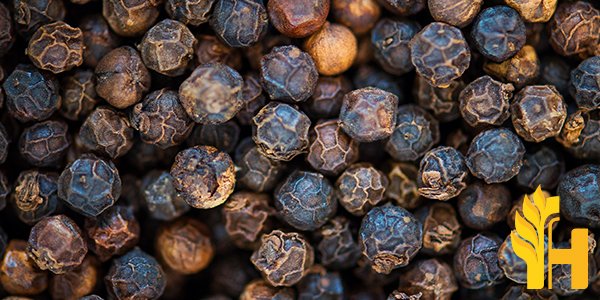Black Pepper price

Where to buy and sell Black Pepper, lowest (cheapest) and highest price.
check offers buy sell Black PepperToday price for Black PepperBlack Pepper
Black pepper (Piper nigrum) is a flowering vine in the family Piperaceae, cultivated for its fruit, which is usually dried and used as a spice and seasoning. The fruit, known as a peppercorn when dried, is approximately 5 millimeters (0.20 in) in diameter, dark red when fully mature, and, like all drupes, contains a single seed. Peppercorns and the ground pepper derived from them may be described simply as pepper, or more precisely as black pepper (dark red), green pepper, and white peppercorns (unripe fruit). Black pepper is native to south India and is extensively cultivated there and elsewhere in tropical regions. Indonesia and Vietnam are the world's largest producers and exporters of pepper. Pepper is a hot spice. It is used to flavor food or to make it spicier. Black pepper is made from the unripe fruit of the Piper nigrum plant. The fruit is dried and then ground into a powder. White pepper is made from the ripe fruit of the Piper nigrum plant. The fruit is soaked in water for about a week, which makes the skin fall off. The white inner part of the fruit is then dried and ground into a powder. Pepper is used to adding flavor to food or to make it spicier. It is also used as a medicine. Pepper can be used to treat coughs, colds, and stomach problems. It can also be used as a pain reliever. Pepper is a common ingredient in many cuisines, including Indian, Chinese, Thai, Vietnamese, Laotian, Cambodian, Malaysian, Indonesian, and Singaporean cuisine. In the United States, black pepper is one of the most common spices added to foods. Green and white peppercorns are also used in cooking. Green peppercorns are unripe fruits that are preserved in vinegar or brine. White peppercorns are ripe fruits that have had their skins removed. Black pepper is a versatile spice that can be used in both sweet and savory dishes. Add it to roasted vegetables, soup, or pasta for extra flavor. You can also use black pepper to make a simple DIY seasoning blend. Just mix together equal parts black pepper Pepper is a source of vitamins A and C. It also contains antioxidants, which can help to protect the body from the effects of free radicals. Free radicals are substances that can damage cells and lead to illness and aging. Black pepper contains piperine, an active compound that gives the spice its distinct flavor. Piperine has been shown to improve the absorption of nutrients in the body, making black pepper a great addition to any healthy diet. In addition to its digestive benefits, black pepper has also been shown to have anti-inflammatory and antioxidant effects. The spice can help reduce the risk of chronic diseases like heart disease and cancer. It can also boost cognitive function and memory.Global black pepper production
As of 2018, Vietnam was the top producer of black pepper in the world, with an estimated 650,000 metric tons produced. This was followed by India, with 490,000 metric tons, and Indonesia, with 320,000 metric tons. Brazil and Sri Lanka round out the top five producers, with approximately 290,000 and 230,000 metric tons of black pepper produced, respectively. According to the Food and Agriculture Organization of the United Nations (FAO), global production of black pepper has been on the rise in recent years, increasing from an estimated 462,000 metric tons in 2013 to 557,000 metric tons in 2016. This trend is expected to continue, with the FAO forecasting that global production will reach 631,000 metric tons by 2019. The majority of the world's black pepper is produced in Asia, with Vietnam, India, and Indonesia accounting for the lion's share of global production. These three countries are also the top exporters of black pepper, with Vietnam leading the way, followed by India and Indonesia. Black pepper is used as a spice in many cuisines around the world and is also popular as a folk medicine. It has a range of purported health benefits, including the ability to boost metabolism, improve digestion, and relieve pain. Despite its widespread use, black pepper is a relatively understudied spice. More research is needed to better understand the potential health benefits of black pepper and how best to incorporate it into the diet.Download our new
Husfarm App
Stay up to date with the current prieces of agricultural products all over the world.
Do you want to sell agricultural products?
Are you an Agricultural processor looking for high-quality products to buy?
Post an ad for FREE!
